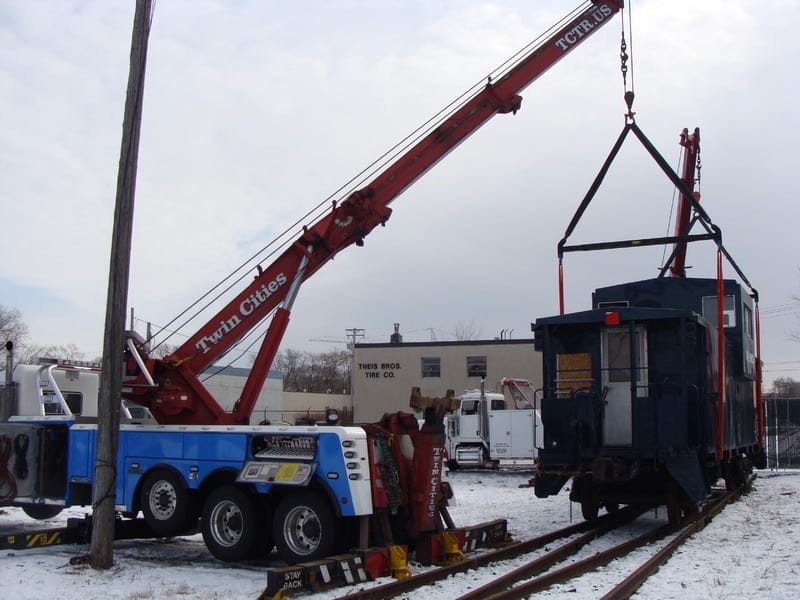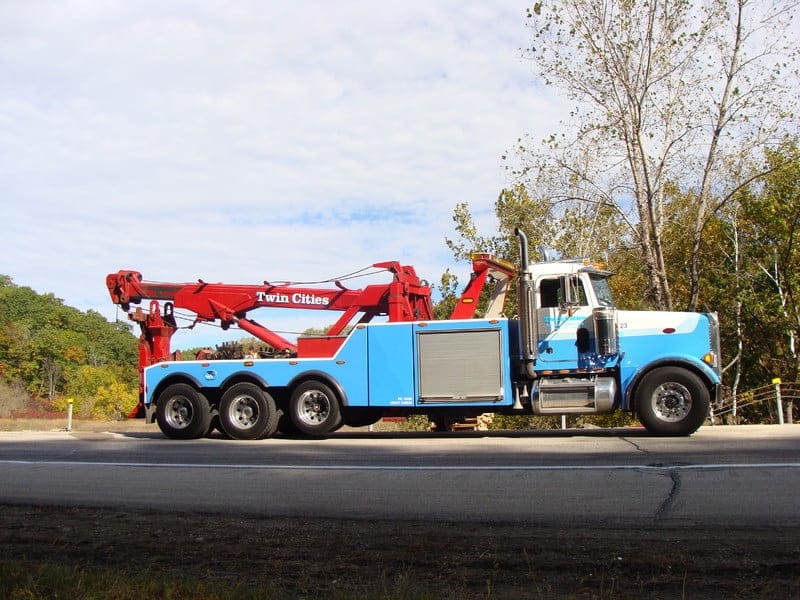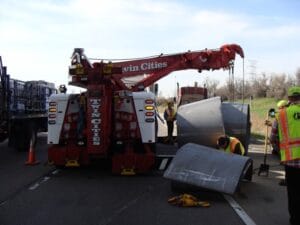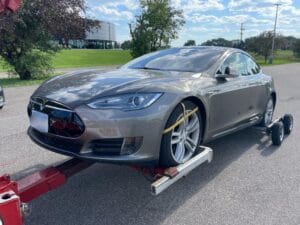Overloaded and Underestimated
The trailer dips. The back tires sink lower. The engine strains before the rig even hits 30. This is the weight of towing beyond your limit. Because towing capacity has a hard, hard limit. Push past it, and the damage begins. Many Buffalo emergency towing calls start with loads that exceeded what the vehicle could handle. The warning signs are subtle at first, then stack up fast and can lead to accidents or breakdowns.

Reason 1: Safety Gets Compromised Quickly
Overloading throws the entire system off balance. Brakes overheat. Tires wear faster. Suspension struggles under pressure.
Common failures include:
- Swaying trailers that drift across lanes
- Brakes that fade or lock up
- Tire blowouts from excess weight
One call to Buffalo emergency towing often starts with brake loss or steering trouble after the load takes control. Reaction time drops. Road grip weakens. Emergency maneuvers become harder to pull off.
Reason 2: Vehicle Damage Builds Over Time
Breakdowns caused by overloading often happen gradually. Consistently towing beyond capacity increases strain on major components and systems. Common long-term effects include blown head gaskets, worn-out transmissions, and axle damage.
The cooling system works harder to manage heat but may eventually fail. Engine and transmission mounts wear down from continuous stress. Exhaust connections loosen due to constant vibration. Oil and transmission fluid degrade faster under load, reducing lubrication. Over time, sensor alerts may indicate system failures that stem from prolonged overuse.
Reason 3: Insurance Claims Can Hit a Wall
Insurance companies check details. If your vehicle was hauling beyond its limit, coverage can get denied.
Then drivers get stuck twice: once on the road and again with the bill. Adjusters look at tow weight, hitch ratings, and cargo logs. If numbers don’t match your policy or vehicle specs, the claim stalls. Some policies even exclude coverage for overloading outright. It turns into a technical argument most drivers aren’t ready for. By then, repairs are already in progress and the costs are stacking up.
Reason 4: The Load Isn’t Secondary
What you tow affects everything. A balanced trailer tracks straight. An unbalanced one shifts, jerks, and leans.
Check these every time:
- Trailer weight
- Cargo tiedown and balance
- Tire pressure and load rating
- Hitch and brake light connections
Missing one of these turns a trip into a Buffalo emergency towing call to our team.
Loose cargo can shift during braking and throw the trailer off line. Low tire pressure heats up faster under load and risks a blowout. Brake lights that aren’t synced can leave you invisible in traffic. A weak hitch connection can shear off under tension. Any one of these puts the whole rig at risk.
Reason 5: Breakdowns Don’t Wait for Good Timing
Towing issues rarely happen near help. Some of the worst spots are cold shoulders, dark county roads, and hills without guardrails.
Al lot of Buffalo emergency towing calls happen during freezing rain, on soft gravel, and at 2 a.m. at night. Location adds difficulty. So does weather. So does load weight.

Twin Cities Transport: Buffalo Emergency Towing Done Right
At Twin Cities Transport, we’ve seen what happens when towing capacity gets ignored. Too much weight, too little attention, and everything comes to a stop.
Our Buffalo emergency towing crew is ready for stuck trailers, overheated trucks, and snapped hitches. We know how to recover and get you moving again. If the load’s already caused trouble, call our Buffalo emergency towing team. But if you’re reading this before hitting the road, double-check your towing numbers. Respect the limit. Skip the breakdown!



